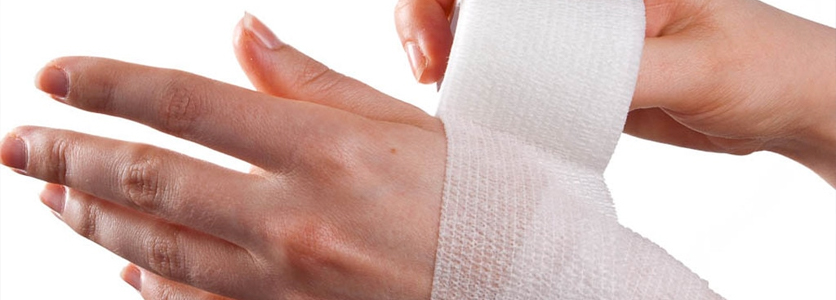After surgery, you will need to take care of the surgical incision as it heals. Your doctor used either stitches, staples, tissue glue, or tape strips to close the surgical incision. You will need to keep the area clean, change the dressing and watch for signs of infection. Doing so not only lowers the risk of infection, it can help you avoid pain/discomfort, and limits scarring.
The following are 10 tips on taking care of your surgical incisions:
Do not wear tight clothing against the incision. It is best to avoid movements that affects the area surrounding your wound. That way, you’ll lower your risk of pulling the wound apart.

Change the dressing according to your doctor’s instructions.
Soaking the wound will soften the scar tissue and can cause the wound to re-open. You can splash the wound but do not rub the wound area as this will cause pain and delay the healing process.
Other dressings that is not waterproof will need to be removed before having a bath or shower.
You may apply an antibacterial ointment to protect the incision from infection.



Scars are sensitive to the sun and can get darkened. For the first 6 months after your operation, keep scars covered or apply sunscreen. Lotions and skin softeners are also helpful to soften scars. Some scars fade over time and some do not.
- a wound that is more red, swollen or hot
- a wound that has green or yellow discharge
- a wound that smells bad
- bleeding that does not stop after applying pressure
- pain that is getting worse
- a feeling of hardness or fullness around the wound
- an incision that opens
- a fever over 37.8°C
这篇文章首次刊登在《健康时尚杂志/GoodHealth Magazine》
Share:
Was this article helpful?
Share:
Was this article helpful?
Health Packages
Elevate your health with tailored health packages at Columbia Asia Hospital. Take charge of your health journey today.
AIA Policyholders Self-pay Benefits
Pink October 2025
From
RM80
Pink October 2024
From
RM80
HLA Policyholders Promo: Influenza Vaccination
RM65
Find Out More
